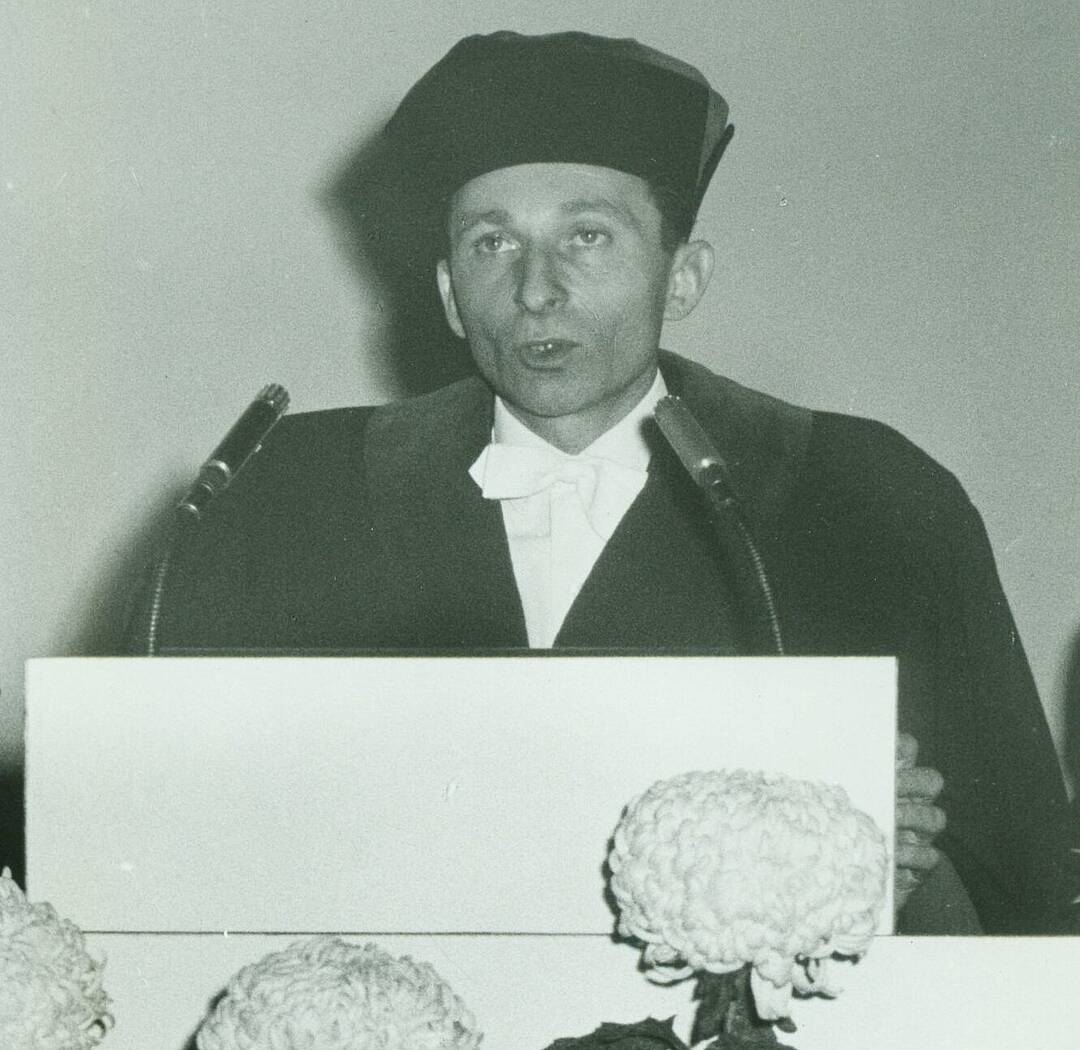Walter Höllerer - a godsend for Technische Universität Berlin
 © Universitätsarchiv
© Universitätsarchiv
Walter Höllerer was a real godsend for Technische Universität and Berlin (West). He succeeded in achieving something which seemed impossible in the dreary post-war era. He restored the flair of the cultural metropolis that was Berlin to a city divided up among the three Western Allies. And he did so by initiating a remarkable series of readings in 1961/1962 entitled “Literature in the age of technology”. It was not just the readings given by the major writers of the age, such as Ingeborg Bachmann, Heimito von Doderer, John Dos Passos, Henry Miller, Natalie Sarraut, Michel Butor, or Salvatore Quasimodo, that were so remarkable; it was also the fact that these cultural highlights were broadcast on television by Sender Freies Berlin that proved so revolutionary.
Poetry as a remedy for trauma
Born in Sulzbach-Rosenberg in the Upper Palatinate, Höllerer was conscripted into the German army in 1942 after completing his Abitur in Amberg. He fought in the war in southern Europe. In Greece he witnessed the shooting of civilians. Poetry helped him to process the trauma of these events. After 1945, he studied first theology and then philosophy, history and literature in Erlangen, Göttingen and Heidelberg.
Academic milestones
He completed his doctorate in 1949 with a work on Gottfried Keller. His first volume of poetry, “Der andere Gast”, appeared in 1952. This work was distinguished by a new poetic voice. From 1954 on, Höllerer was a member of the legendary “Group 47”. He continued to dedicate himself to poetry and literary criticism. He published the anthology “Transit” in 1956. The title revealed Höllerer’s commitment to breaking new ground and transcending borders. As university lecturer in Frankfurt on Main, he was soon competing with Theodor W. Adorno in terms of popularity among students. Even his Habilitation work “Zwischen Klassik und Moderne” (1958) has something of the programatic.
Professorship at Technische Universität Berlin
In 1959, Höllerer was appointed professor of literary studies at the humanities faculty of Technische Universität Berlin. His inaugural lecture ”Literature in the age of technology” marked a paradigm shift. Modern poetry could not, he maintained, separate itself from what it regarded as the demon of technology. On the contrary: The language of literature would have to engage with the everyday language of calculus, the formalized codes of science and technology. This marked the start of what Norbert Miller termed the “Höllerer experiment”. Höllerer initiated three important projects whose impact reached beyond the boundaries of Berlin: the TU institute Language in the Age of Technology and the magazine of the same name, which is still being published today, were two. The third was the international series of readings in the congress hall referred to above which gave rise in 1963 to the legendary “Literarisches Colloquium Berlin”.
Increase in popularity
This led to international interest in Technische Universtität Berlin and the City West area. It was not only though his interest in American poetry (which was achieving great popularity in the popular music of the time, such as the work of Bob Dylan) that Höllerer was able to enthuse the young generation of the 1960s. He also understood exactly how to make use of the media to widen awareness of modern poetry, music, and cinematography without bowing down to its rules. He was known as the “circus ringmaster”, but Höllerer ensured that media managers always played second fiddle to writers, musicians and film makers. His work is of greater relevance today than ever. This is demonstrated by the annual Höllerer readings and the “Technology and Poetry” symposium held at Technische Universität Berlin dedicated to his literary legacy. He died on 20 May 2003.
